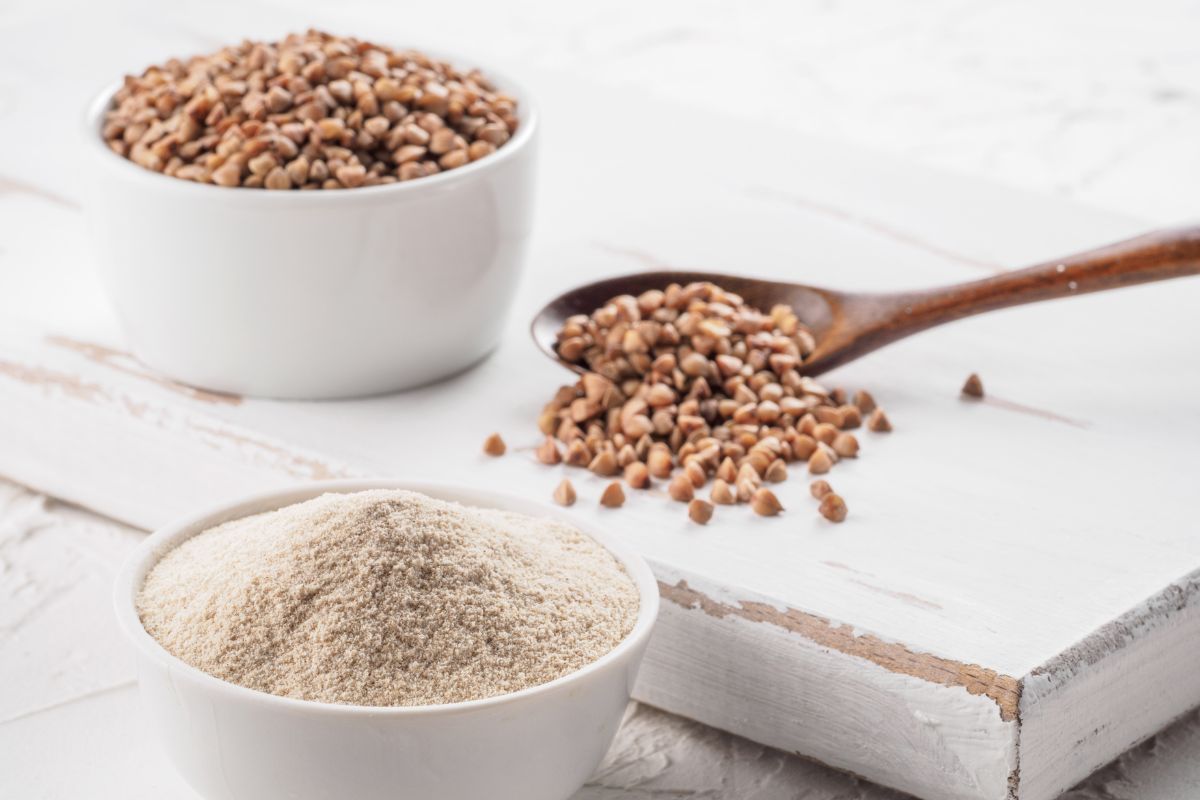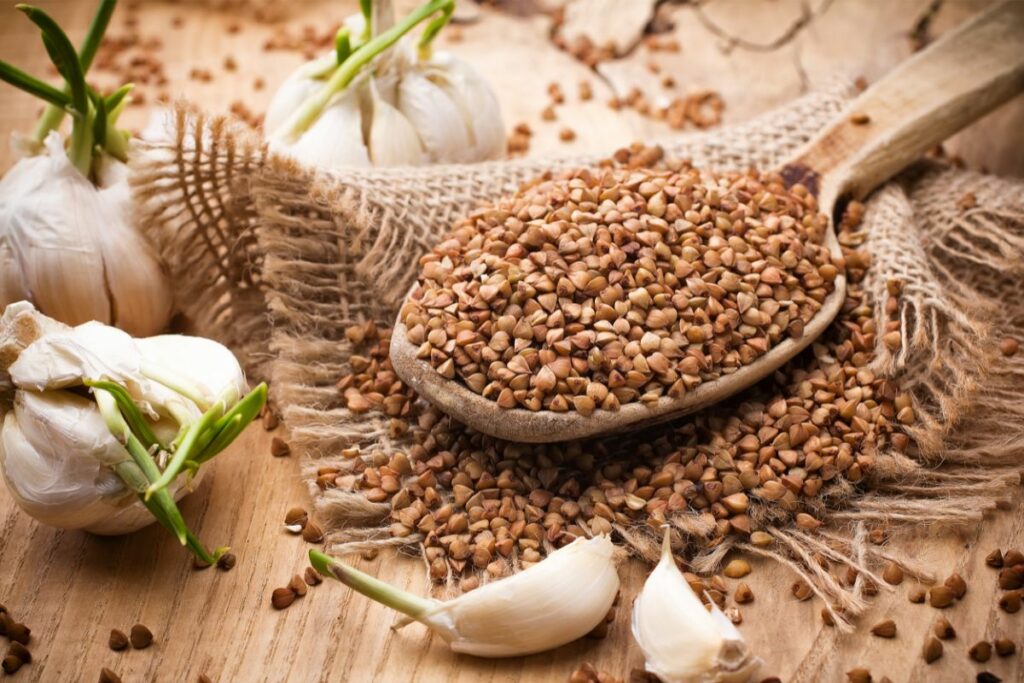Are you thinking about introducing more grains into your diet?
As we’re sure you’re already well aware, kidneys are a vital organ of the body that have the ability to get rid of waste and other unneeded substances from the body in order to maintain a healthy balance of fluids and more.
One of the very best ways that the optimal functioning of the kidneys can be achieved is by ensuring that you are following a healthy, balanced diet, as well as a healthy lifestyle in general.
So, by incorporating nutritious grains high in fiber in your diet, you will be able to give your kidneys the best chance at staying healthy.
The only question is, is buckwheat hard on kidneys? If you are currently asking yourself this question, then rest assured that you have come to the right place.
In this guide, we are going to be taking a closer look at whether or not buckwheat is hard on the kidneys or not, as well as providing you with additional information.
So, without further ado, just keep on reading!
What Is Buckwheat?
Before we get into the nitty gritty, we first think that it would be a good idea to talk you through what buckwheat is, exactly.
As one of the lesser known whole grains, buckwheat is a grain that is not only known for its highly nutritious content, but is also known for its very low levels of both potassium and phosphorus.
Traditionally, buckwheat is typically thought of as being a “cereal” grain, but the truth is that buckwheat is much more of a fruit seed that comes from the same family as rhubarb.
Given the fact that buckwheat is a whole grain, you might have already been able to guess that it is highly nutritious and a great source of minerals, fiber and more.
So much so, that many people actually refer to buckwheat as being what is known as a “superfood”.
Offering a great source of fiber, energy and protein, here are the main benefits of what you can expect from buckwheat if you are thinking about including it in your everyday diet:
High Levels Of Copper
The first major benefit of buckwheat is that it is high in copper. Copper is an essential trace element and many people often find that they have a deficiency in it.
Essential to healthy functioning, copper has the ability to help regulate and encourage the healthy functioning of the heart, as well as the body’s functioning in general.
With buckwheat, you’ll be able to give your body plenty of copper, so it’s ideal for those that have a copper deficiency.
High Levels Of Iron

Along with high levels of copper, we think that you might also be interested to learn that buckwheat is also super high in iron levels, too!
A mineral that we all need, iron deficiencies can lead to a vast array of health conditions including anemia.
Without healthy levels of iron in the body, it can lead to the healthy functioning of the blood becoming compromised and unable to carry healthy levels of oxygen.
That being said, eating buckwheat is a great way to give your body all the iron it needs.
Low Levels Of Phosphorus And Potassium
Unlike other types of whole grains out there to choose from, buckwheat is very low in phosphorus and potassium!
Phosphorus and potassium are two minerals that can support the healthy maintenance of bodily tissues and more.
However, too much can be hard on the kidneys, which makes buckwheat an ideal whole grain option for those that are in need of a whole grain that is going to be table to provide them with all of the fibrous nutrition they need, without the high levels of phosphorus and potassium.
Now that you have a better understanding of what buckwheat is, as well as some of the main benefits that you can expect to get from it, we’re sure that you’ll now be wondering whether or not it is a whole grain that is hard on the kidneys.
This brings us to our next point!
Is Buckwheat Hard On The Kidneys?
So, now for the all important question – is buckwheat hard on the kidneys? To cut a long story short, the answer is no, buckwheat isn’t known for being overly hard on the kidneys.
So much so, buckwheat is known for being a whole grain that is an ideal alternative to some of the more common whole grains that are high in phosphorus.
Wondering why? Well, as we have already mentioned above, buckwheat is known for being a whole grain that is very low in both phosphorus and potassium.
Thanks to that, this means that, among all of its other benefits – buckwheat will be able to improve heart health, contribute to healthy weight loss if needed as well as contribute to managing diabetes.
Along with this, thanks to those low levels of both potassium and phosphorus, buckwheat is also an ideal whole grain for those that are in need of a whole grain that is going to be suitable for eating alongside a healthy, renal diet.
If you’re not sure what that is, a renal diet is often followed by those that suffer from kidney disease or kidney issues, and is a diet that is low in phosphorus, sodium and protein.
Generally speaking, whole grains often tend to be extremely high in phosphorus and – but buckwheat is one of the only whole grains that does not contain high amounts of phosphorus.
Thanks to this, it means that buckwheat is a great source of magnesium, copper, fiber and iron without being very hard on the kidneys thanks to the low amounts of both minerals phosphorus and potassium.
Thanks to this, buckwheat is a great whole grain alternative for those who might suffer from kidney disease.
Wrapping Up
There we have it! You have made it to the end of the article.
Now that you have taken the time to read through all of the above, we hope that we have been able to give you a much better understanding of what buckwheat whole grain is, as well as whether or not it is hard on the kidneys.
Just to sum up all we have spoken about above, buckwheat is not only highly nutritious but it is also very low in both phosphorus and potassium levels.
As one of the only whole grains that is not high in phosphorus and potassium – this means that buckwheat is a great option for those following a renal diet or simply in need of an alternative whole grain that isn’t going to hard on the kidneys.
Along with being ideal for those that suffer from kidney disease, buckwheat is also a whole grain that offers plenty of fiber, iron, copper, magnesium and more.
So, with that being said, it’s a great healthy whole grain to include in your diet. Thank you for taking the time to read through this guide, and goodbye for now!








